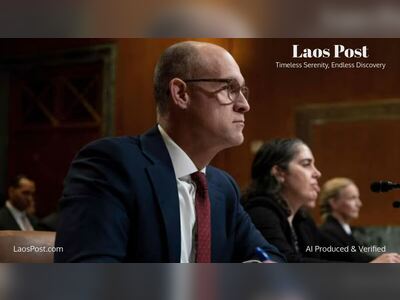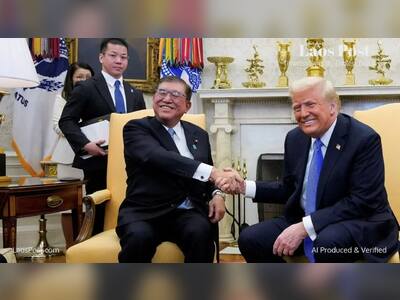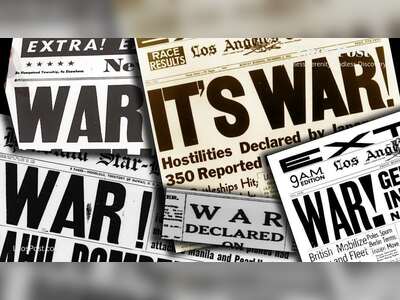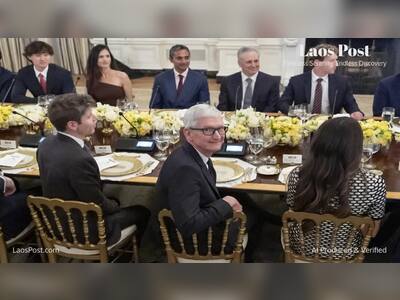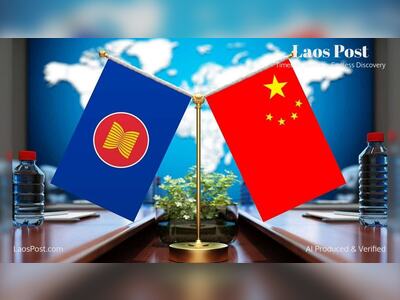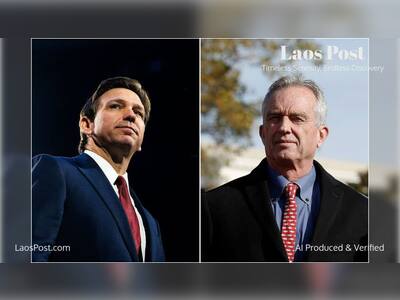Trump’s New War – and the ‘Drug Tyrant’ Fearing Invasion: ‘1,200 Missiles Aimed at Us’
President Trump ordered the first-ever airstrike on a drug smuggling boat, marking a dramatic shift in U.S. policy against cartels. Venezuela’s President Nicolás Maduro, accused by Washington of leading a cartel, declared maximum readiness, warning of American invasion as U.S. naval forces massed near the Caribbean coast.
President Donald Trump is changing the rules in the fight against drug cartels.
Under his direct order, a boat carrying eleven smugglers was bombed for the first time, even though officials admitted they could have been arrested.
“This has not worked for years. Now—we will bomb them, and eliminate them,” the administration declared.
The U.S. Navy has concentrated amphibious ships with thousands of sailors, along with a submarine, near Venezuela, whose president Nicolás Maduro is accused by Washington of heading a cartel himself.
Maduro announced “maximum readiness” for an attack: “Trump is being dragged into a massacre.” Secretary of State Marco Rubio signaled: “We will not strike only small boats. Trump wants a war against the cartels.”
Trump has made the drug war, which kills tens of thousands of Americans each year, a central mission.
Shortly after returning to the White House, he designated several cartels as terrorist organizations.
Last month, it was revealed that the president secretly signed an order instructing the Pentagon to prepare for military operations against cartels in Latin America.
This week, the plan was executed: the administration announced the bombing of a fast motorboat carrying eleven people allegedly smuggling drugs from Venezuela to the United States.
Trump personally released footage of the strike, reportedly carried out from the air, stressing it was a message to the cartels: “To anyone even thinking about bringing drugs into the United States of America—beware!”
The administration revealed few details, but Trump claimed the boat was operated by the Venezuelan cartel Tren de Aragua, one of those declared terrorist groups.
He called the smugglers “narco-terrorists.” Rubio clarified that, unlike in past decades when U.S. Coast Guard operations stopped smuggling boats, the president had changed the rules to destroy them instead.
“Instead of capturing it, by the president’s order, we blew it up—and this will happen again,” Rubio said.
Rubio argued that the traditional policy had failed: “For many years, the United States used intelligence to track and intercept drug boats.
We did this—and it did not work.” He said cartels simply calculated the “lost revenue” from seized shipments, about two percent of their total, and continued operations.
“What will stop them is if we blow them up, and then you eliminate them.” He declared that America is now “waging war against narco-terrorist organizations.”
The strike raised legal questions.
By law, presidents generally need congressional approval to launch military campaigns, though presidents of both parties have previously ordered limited operations without it.
Trump and his team argue that designating cartels as terrorist groups justifies the strikes.
Defense Secretary Pete Hegseth said cartels like Tren de Aragua are “trying to poison” Americans.
Rubio said, “The president has the right to eliminate immediate threats to the United States.” Critics, however, questioned how unarmed smugglers could be defined as an immediate threat.
Legal scholars noted that labeling an organization as terrorist normally allows sanctions, not lethal strikes.
White House spokesperson Anna Kelly said the attack was “to protect vital national interests,” a statement interpreted as invoking the 2001 congressional authorization to fight terrorism after September 11.
Legal experts doubted that authorization could justify this strike.
Still, Trump insisted: “We must defend our country, and we will do it.”
Mary Ellen McConnell, a law professor at the University of Notre Dame, argued that since the U.S. is not in an “armed conflict” with Venezuela or its criminals, the strike violated international law and the smugglers’ “right to life.” The attack occurred in international waters, but she warned Trump might order similar strikes inside U.S. territory.
“When a president decides he can kill individuals without trial, he faces no restraint. This is an extremely dangerous step.”
The escalation has fueled tension with Venezuela, which the U.S. accuses of being directly involved in drug trafficking.
Washington claims Maduro himself heads the “Cartel of the Suns,” said to include senior Caracas officials.
Last month, Attorney General Pam Bondi announced a $50 million reward for information leading to Maduro’s arrest.
Defense Secretary Hegseth yesterday called him the “boss of a narco-state” and said he must choose “whether to continue being a drug smuggler.”
Maduro, in power since the death of Hugo Chávez in 2013, is widely regarded in the West as a dictator amid allegations of election fraud.
Trump pursued “maximum pressure” sanctions against him during his first term, though Maduro remained in office.
Now, as part of the new anti-cartel campaign, Trump has ordered a massive U.S. naval buildup in the southern Caribbean near Venezuela.
According to reports, the forces include three missile destroyers, three amphibious warships carrying 4,500 sailors, a Marine task force of 2,200 troops, a submarine, and several P-8 surveillance aircraft.
Maduro, denying U.S. accusations, expressed deep concern about the military presence, warning of a possible attack or invasion.
In a speech Monday, before the boat bombing, he declared his country in “maximum readiness for self-defense,” saying the U.S. naval presence posed “a threat unseen in 100 years.” He claimed that 1,200 American missiles were “aimed” at Venezuela, accused Washington of severing communication channels, and said Rubio was dragging Trump into “bloodshed and massacre.” He vowed his nation “will not surrender to blackmail or threats of any kind.”
Rubio, citing a U.S. indictment against Maduro on drug trafficking charges since 2020, called him a “fugitive criminal.” Speaking in Ecuador, Rubio said the U.S. would continue its military campaign against smugglers and would add two Ecuadorian criminal organizations to the U.S. terror list.
He signaled further escalation: “We are not just going to hit smugglers with small, fast boats. The president said he wants us to wage war against these organizations.”
Under his direct order, a boat carrying eleven smugglers was bombed for the first time, even though officials admitted they could have been arrested.
“This has not worked for years. Now—we will bomb them, and eliminate them,” the administration declared.
The U.S. Navy has concentrated amphibious ships with thousands of sailors, along with a submarine, near Venezuela, whose president Nicolás Maduro is accused by Washington of heading a cartel himself.
Maduro announced “maximum readiness” for an attack: “Trump is being dragged into a massacre.” Secretary of State Marco Rubio signaled: “We will not strike only small boats. Trump wants a war against the cartels.”
Trump has made the drug war, which kills tens of thousands of Americans each year, a central mission.
Shortly after returning to the White House, he designated several cartels as terrorist organizations.
Last month, it was revealed that the president secretly signed an order instructing the Pentagon to prepare for military operations against cartels in Latin America.
This week, the plan was executed: the administration announced the bombing of a fast motorboat carrying eleven people allegedly smuggling drugs from Venezuela to the United States.
Trump personally released footage of the strike, reportedly carried out from the air, stressing it was a message to the cartels: “To anyone even thinking about bringing drugs into the United States of America—beware!”
The administration revealed few details, but Trump claimed the boat was operated by the Venezuelan cartel Tren de Aragua, one of those declared terrorist groups.
He called the smugglers “narco-terrorists.” Rubio clarified that, unlike in past decades when U.S. Coast Guard operations stopped smuggling boats, the president had changed the rules to destroy them instead.
“Instead of capturing it, by the president’s order, we blew it up—and this will happen again,” Rubio said.
Rubio argued that the traditional policy had failed: “For many years, the United States used intelligence to track and intercept drug boats.
We did this—and it did not work.” He said cartels simply calculated the “lost revenue” from seized shipments, about two percent of their total, and continued operations.
“What will stop them is if we blow them up, and then you eliminate them.” He declared that America is now “waging war against narco-terrorist organizations.”
The strike raised legal questions.
By law, presidents generally need congressional approval to launch military campaigns, though presidents of both parties have previously ordered limited operations without it.
Trump and his team argue that designating cartels as terrorist groups justifies the strikes.
Defense Secretary Pete Hegseth said cartels like Tren de Aragua are “trying to poison” Americans.
Rubio said, “The president has the right to eliminate immediate threats to the United States.” Critics, however, questioned how unarmed smugglers could be defined as an immediate threat.
Legal scholars noted that labeling an organization as terrorist normally allows sanctions, not lethal strikes.
White House spokesperson Anna Kelly said the attack was “to protect vital national interests,” a statement interpreted as invoking the 2001 congressional authorization to fight terrorism after September 11.
Legal experts doubted that authorization could justify this strike.
Still, Trump insisted: “We must defend our country, and we will do it.”
Mary Ellen McConnell, a law professor at the University of Notre Dame, argued that since the U.S. is not in an “armed conflict” with Venezuela or its criminals, the strike violated international law and the smugglers’ “right to life.” The attack occurred in international waters, but she warned Trump might order similar strikes inside U.S. territory.
“When a president decides he can kill individuals without trial, he faces no restraint. This is an extremely dangerous step.”
The escalation has fueled tension with Venezuela, which the U.S. accuses of being directly involved in drug trafficking.
Washington claims Maduro himself heads the “Cartel of the Suns,” said to include senior Caracas officials.
Last month, Attorney General Pam Bondi announced a $50 million reward for information leading to Maduro’s arrest.
Defense Secretary Hegseth yesterday called him the “boss of a narco-state” and said he must choose “whether to continue being a drug smuggler.”
Maduro, in power since the death of Hugo Chávez in 2013, is widely regarded in the West as a dictator amid allegations of election fraud.
Trump pursued “maximum pressure” sanctions against him during his first term, though Maduro remained in office.
Now, as part of the new anti-cartel campaign, Trump has ordered a massive U.S. naval buildup in the southern Caribbean near Venezuela.
According to reports, the forces include three missile destroyers, three amphibious warships carrying 4,500 sailors, a Marine task force of 2,200 troops, a submarine, and several P-8 surveillance aircraft.
Maduro, denying U.S. accusations, expressed deep concern about the military presence, warning of a possible attack or invasion.
In a speech Monday, before the boat bombing, he declared his country in “maximum readiness for self-defense,” saying the U.S. naval presence posed “a threat unseen in 100 years.” He claimed that 1,200 American missiles were “aimed” at Venezuela, accused Washington of severing communication channels, and said Rubio was dragging Trump into “bloodshed and massacre.” He vowed his nation “will not surrender to blackmail or threats of any kind.”
Rubio, citing a U.S. indictment against Maduro on drug trafficking charges since 2020, called him a “fugitive criminal.” Speaking in Ecuador, Rubio said the U.S. would continue its military campaign against smugglers and would add two Ecuadorian criminal organizations to the U.S. terror list.
He signaled further escalation: “We are not just going to hit smugglers with small, fast boats. The president said he wants us to wage war against these organizations.”

